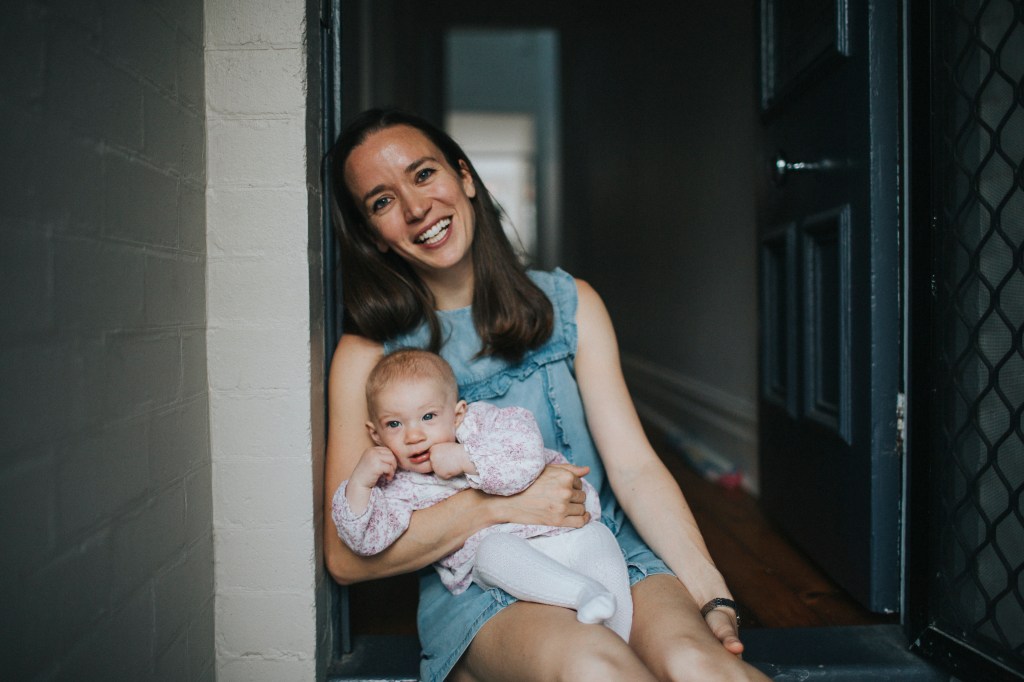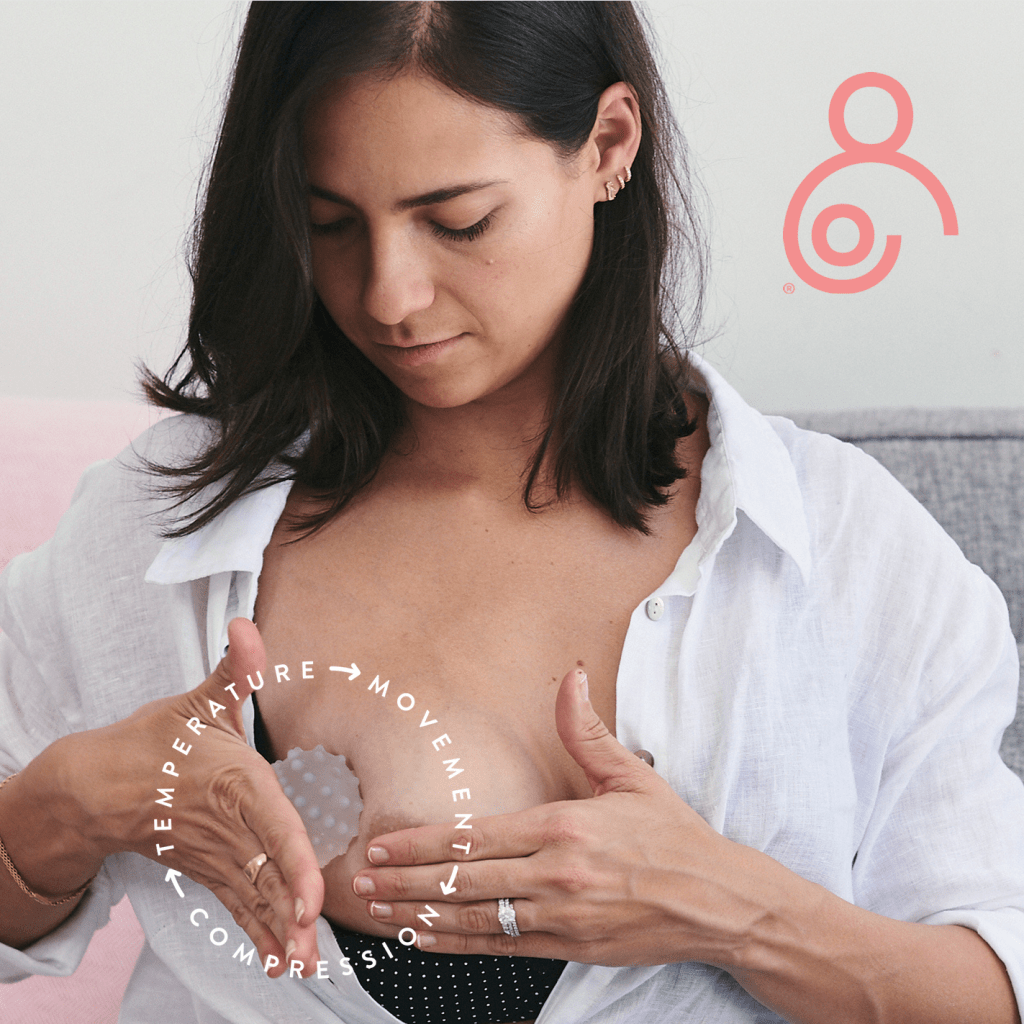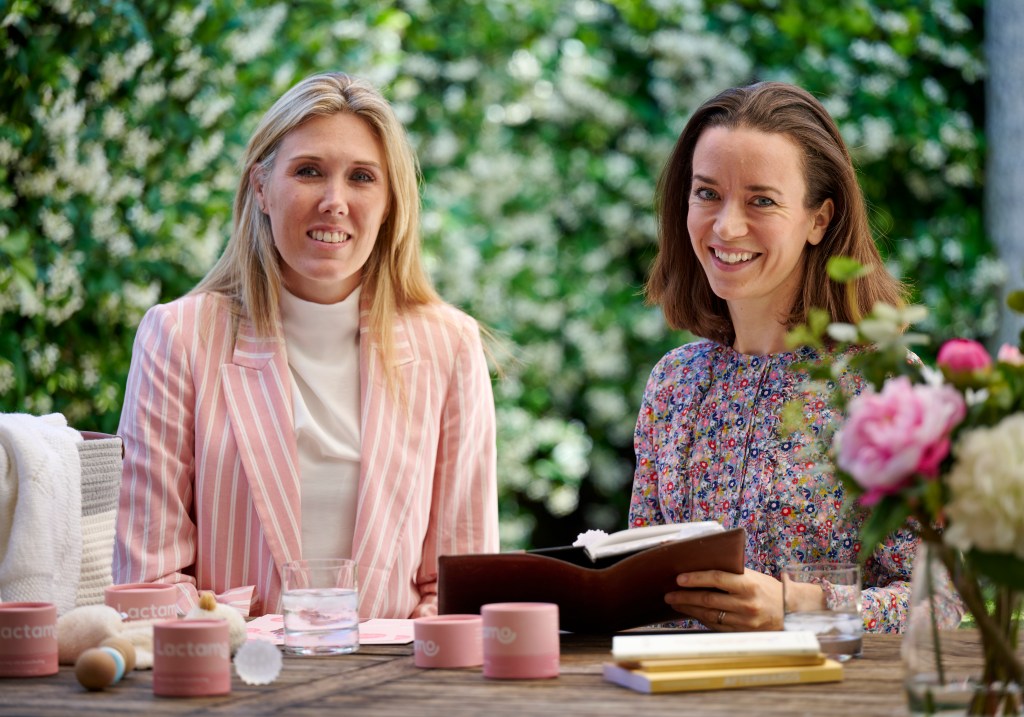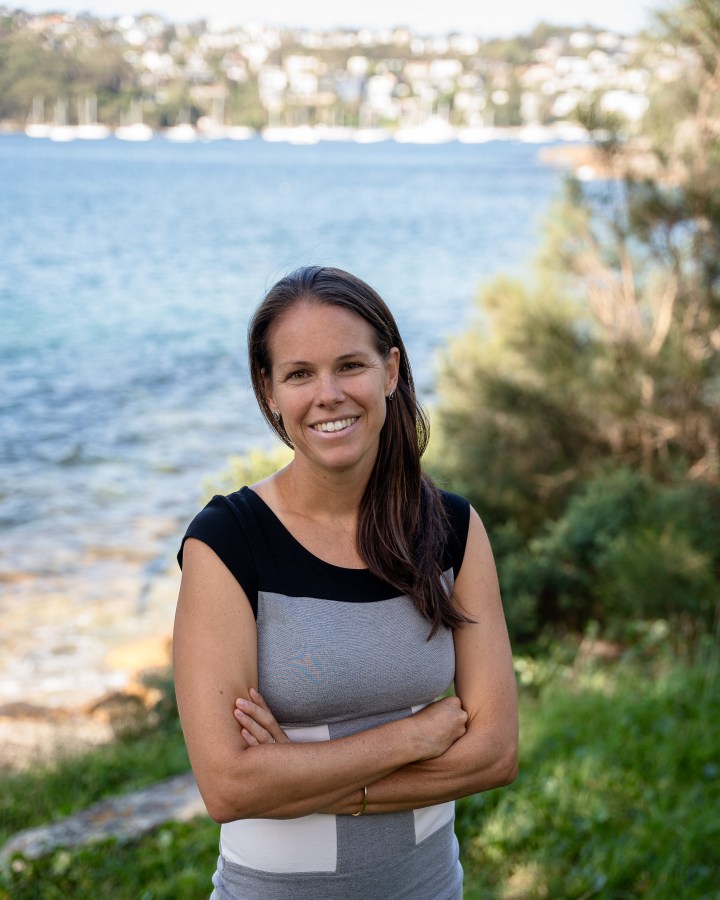The Global Breastfeeding Collective set a target of 70% of infants being breastfed by 2030. As Lactamo’s founder experienced first-hand, breastfeeding is not always as easy as it sounds. She developed a class 1 medical device to aid and facilitate optimal breastfeeding right here in Australia.

Five years ago, Etta Watts-Russell had her hands full practicing corporate law in a Sydney firm, and being a mum to two toddlers. While on maternity leave with her third child, Watts-Russell had an epiphany.
“Experiencing problems breastfeeding my first and second child – and then seeing a lack of conversation and a lack of solutions, and really a lack of support in the space – I just assumed it was my problem,” Watts-Russell tells me.
The third time around, the British-born lawyer discovered the magnitude of the challenges breastfeeding mothers face.
“I started speaking to lactation consultants, healthcare professionals, and they all said – why doesn’t this exist already? This would be something that would help all of my patients every day.”
Etta Watts-Russell
“It was with my third child that I joined a really supportive mothers group, and everyone was just really honest. They were all talking about how difficult it was. I thought, all right, this is more than me. So I started doing research, and I realised 92% of mums experience common problems breastfeeding.”
It was a revelation that Watts-Russell, and many other new mums, found surprising.
“I assumed that since it’s natural, it would therefore be easy. You know, when you wanted milk – when your baby wanted milk, you would have exactly the right amount,” she says.

Finding that was not the case, the industrious Watts-Russell set out to develop a solution.
“Once I saw the extent of the problem and the importance of it, I knew that what would help me, could also help other mums. I started speaking to lactation consultants, healthcare professionals, and they all said – why doesn’t this exist already? This would be something that would help all of my patients every day. The business really grew from there,” says Watts-Russell.
The Lactamo breastfeeding solution
What she developed is a clinically validated world-first in breastfeeding innovation, according to Watts-Russell. Lactamo is a class 1, Australian-developed medical device, that aids, promotes, and facilitates breastfeeding.
“It’s a physical product that retails at $60 in Australia. It is medical-grade silicone filled with a non-toxic biocompatible gel. It has hollow surface lumps, and is heatable and reusable,” the entrepreneur tells me.
“It essentially facilitates therapeutic breast massage through the trifecta – temperature, movement and compression – for optimal breastfeeding. And that therapeutic part is really important,” Watts-Russell says. “Deep tissue massage is not appropriate for breast tissue and would do damage. Other products on the market are often criticized by lactation consultants, for not matching the elasticity of lactating breast tissue.”
The entrepreneurial journey
The tenacity of Lactamo’s 43-year-old founder is palpable. In 2022, Watts-Russell represented Australia at the G20 at the invitation of the Australian Government. The next year she was asked to be the global chair of the G20 Inclusion Taskforce.
She was awarded a $365,000 ‘Boosting Female Founders’ government grant this year, and a federal grant to accelerate commercialisation of the Lactamo device in 2022. Watts-Russell was the winner of Business NSW’s award for ‘Outstanding Startup’ in 2021, and the MedTech Actuator Award for Australia and India in 2019.

However, the entrepreneurial journey has been challenging, Watts-Russell says.
“You’ve got to be a yes person in a game like this. There were various different technical problems with the manufacturing along the way. I’d exhaust all of my contacts, but it’s really important that when one person says, no, you ask, ok, who might you know that you can introduce me to? Then they say, no, and you ask – who else have you got?”
Watts-Russell says a relentless ability to problem-solve and persist is essential to surviving the long-haul of entrepreneurship.
“You end up speaking to this 15th person down the line – which turns out to be a German professor in a European University, and you’re both trying to translate what each other is saying – but you get the answer, you get the solution. Now people say – she must be well-connected. No, I just don’t take no for an answer. Tell me who else who else can you introduce me to?”
Trials and tribulations
The accolades Watts-Russell has received are indicative of her drive and commitment to excellence. Lactamo was part of an independent clinical trial undertaken by Deakin University and the Western Health Partnership published in the International Breastfeeding Journal in 2022.
August 1 marks the beginning of World Breastfeeding Week which aims to shine a light on the problematic lack of breastfeeding support during the first week of a newborn’s life. The World Alliance for Breastfeeding Action says the first week is critical, and can negatively impact overall breastfeeding intentions and prevalence.
Lactamo undertook a survey in advance of World Breastfeeding Week, that found that 95% of women reported breastfeeding challenges. 76% of respondents faced barriers accessing breastfeeding support and 69% of women thought more support in the ‘critical first week’ would have improved their breastfeeding experience.
Before breastfeeding, only 13% of those surveyed thought breastfeeding would be hard. After the fact, 91% of respondents said that subsidised lactation consultants would be valuable.
On the clinical side, Lactamo participated in nationwide pilots in Australian and Indian hospitals this year, that concluded that the device ’empowers mums to successfully navigate breastfeeding challenges in an unprecedented way and is an essential item for every mum’. It was also revealed that using Lactamo in the first week post-partum proactively prevents lactation issues, supporting long-term breastfeeding success. Other outcomes of the Cloudnine Hospital pilot include:
- For the month that they used Lactamo mothers had zero breast abscesses (whereas usually they have many abscesses).
- Lactamo was “phenomenal for engorgement, oversupply, pain, blocked ducts and abscesses in particular”.
- Lactamo allowed patients to use massage therapy where they otherwise wouldn’t have been able to.
- Lactamo easily resolved 90% of all breastfeeding problems.
Despite the traction and success of trials undertaken so far, Watts-Russell is conscious that not all mothers wish to breastfeed, and is careful not to pressure women who choose not to.
“Lactamo is here to give Mums the best experience, and the best success – if they choose to breastfeed. And that’s a really important point, because there’s so much pressure,” says Watts-Russell.
“Breast is not best, and it’s really unhelpful to say ‘breast is best’ for women who choose not to [breastfeed] for whatever reason.”
Are you – or is someone you know -creating the next Afterpay or Canva? Nominations are open for Forbes Australia’s first 30 under 30 list. Entries close midnight, July 31, 2024.
Look back on the week that was with hand-picked articles from Australia and around the world. Sign up to the Forbes Australia newsletter here or become a member here.


